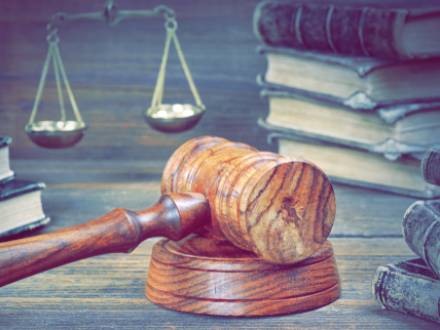Understanding Administrative License Revocation (ALR) Hearings After a Texas DWI Arrest
 If you've been arrested for Driving While Intoxicated (DWI) in Texas, you may be facing an Administrative License Revocation (ALR)—a separate civil process that can suspend your driver’s license, regardless of the outcome of your criminal case. ALR hearings are governed by Texas Transportation Code Sections 524 and 724, and they are one of the first legal hurdles after a DWI arrest. A Fort Worth, Texas criminal defense attorney can help you protect your rights and understand your options.
If you've been arrested for Driving While Intoxicated (DWI) in Texas, you may be facing an Administrative License Revocation (ALR)—a separate civil process that can suspend your driver’s license, regardless of the outcome of your criminal case. ALR hearings are governed by Texas Transportation Code Sections 524 and 724, and they are one of the first legal hurdles after a DWI arrest. A Fort Worth, Texas criminal defense attorney can help you protect your rights and understand your options.
What Triggers an ALR Hearing?
The Texas Department of Public Safety (DPS) will initiate an ALR proceeding if:
-
You refuse to submit to a chemical test (blood or breath), or
-
You fail the test by providing a blood alcohol concentration (BAC) of 0.08 percent or higher.
You have just 15 days from the date of arrest to request a hearing. If you do not request the hearing in time, your license will be automatically suspended.
Implied Consent: Texas Transportation Code § 724
Texas follows an implied consent rule under Section 724.011, which means that by driving on Texas roads, you automatically agree to submit to chemical testing if you're arrested for DWI.
Refusing to comply with this law can lead to a license suspension, even if you're never convicted in criminal court. Your refusal can also be used against you as evidence of guilt in your DWI trial.
License Suspensions Under Section 524
Under Texas Transportation Code Chapter 524, if you provide a BAC over 0.08 percent, your license can be suspended even if your DWI charges are later dismissed.
-
First failure: 90-day suspension
-
Prior DWI contact: 1-year suspension
-
Refusal to test (under § 724.035): 180 days for first offense, up to 2 years with prior enforcement contact
Burden of Proof at an ALR Hearing vs. Criminal Court
One of the most important differences between an ALR hearing and a criminal DWI trial is the burden of proof.
-
In criminal court, the prosecution must prove guilt beyond a reasonable doubt—the highest standard in the legal system.
-
In an ALR hearing, DPS only needs to prove their case by a preponderance of the evidence—meaning it's more likely than not that the DWI arrest and chemical test refusal/failure were lawful.
This lower burden means it's much easier for the state to suspend your license in the ALR hearing than it is to convict you of DWI in court.
Why You Need an Attorney at Your ALR Hearing
The ALR hearing is a critical opportunity to:
-
Cross-examine the arresting officer under oath
-
Challenge the legality of the traffic stop and arrest
-
Potentially uncover issues that could benefit your criminal DWI defense
-
Fight to keep your license
As a seasoned Fort Worth DWI attorney, Craig Dameron has represented hundreds of clients at ALR hearings. We know how to challenge the DPS’s evidence, question officer testimony, and look for technical or procedural errors that could help protect your license and your future.
Contact Our Fort Worth, TX DWI Defense Lawyer Today
If you've been arrested for DWI in Texas, don’t wait—you only have 15 days to act. Schedule a free consultation with a Fort Worth, TX criminal defense attorney to discuss your ALR hearing and your full legal defense. Call 817-222-0624 today.

 817-222-0624
817-222-0624







